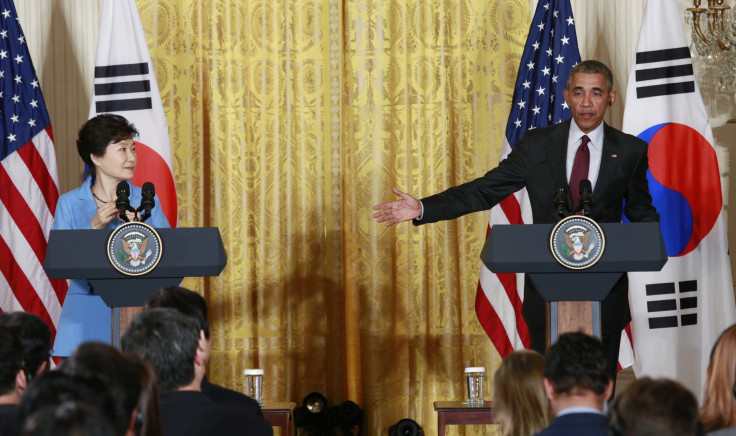South Korea Will Get China To Play 'Constructive Role' In North Korea Nuclear Issue

South Korea will work toward getting China to play a "constructive role" to solve North Korea’s nuclear issue, Seoul’s foreign ministry said, Yonhap News Agency reported Monday. The report comes after talks between South Korean President Park Geun-hye and U.S. President Barack Obama last week, in which the two countries confirmed a two-way approach to deal with North Korea.
According to this approach, on the one hand, there would be tough pressure on North Korea if it avoids denuclearization talks while, on the other hand, incentives would be offered for engaging in a dialogue.
The U.S. and South Korea also plan to "intensify high-level strategic consultations to create a favorable environment for the peaceful unification of the Korean Peninsula," according to a joint statement released Friday.
The Yonhap report added that China, which is host to the now-suspended six-party talks -- which were aimed at halting Pyongyang’s nuclear program through negotiations -- has a lot of influence on North Korea. The parties were China, the United States, North Korea and South Korea, Japan, and Russia. North Korea opted out of the talks in 2008, two years after it conducted its first nuclear test. After that, it conducted two more nuclear tests -- one in 2009 and another in 2013.
Meanwhile, North Korea has hinted at a plan to conduct a fourth nuclear test. In January, the reclusive North had offered to cancel its upcoming nuclear tests if U.S. and South Korea agreed to abort their annual military drills. However, on Saturday Pyongyang turned down the U.S. and Seoul’s calls for talks on denuclearization, and reiterated its demand for a new peace treaty in place of the 1953 armistice, which ended the Korean War.
The armistice, which also established the Korean Demilitarized Zone, was made to "insure a complete cessation of hostilities and of all acts of armed force in Korea until a final peaceful settlement is achieved."
© Copyright IBTimes 2025. All rights reserved.






















